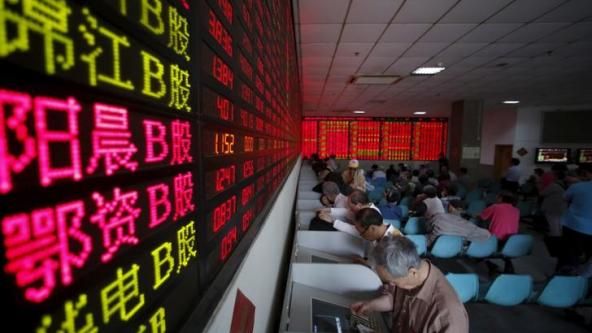Unless over-exposed, those who have invested for diversification can stay put, and new investors might invest through SIPs.
 In the past two weeks, the Chinese market has gone through considerable turmoil. The country's benchmark Shanghai Composite lost about 32 per cent in 16 sessions between June 12 and July 7.
In the past two weeks, the Chinese market has gone through considerable turmoil. The country's benchmark Shanghai Composite lost about 32 per cent in 16 sessions between June 12 and July 7.
Despite gains of 13 per cent in the past three sessions, investors who have put money in China feeder funds might be a worried lot. Should they look at making an exit? Any individual who has already invested or looking to invest in feeder funds needs to assess two key parameters.
The first is the prospect of the country, region or theme the fund will invest in and the second, the correlation of the market to that of Indian equities.
“Considering that the Chinese markets have run up significantly in the past one year and the uncertainty prevailing at this juncture, it might be better for investors to cut down the exposure to Chinese feeder funds,” said Vidya Bala, head, MF research, Fundsindia.com.
As on June 12, the Shanghai Composite was up more than 150 per cent up over its year-ago level.
India has had medium-to-high correlation to emerging markets. However, historically, the correlation between Indian and Chinese markets has been low or negative, according to experts. The other good news is that the China feeder funds invest in Chinese H shares, which are listed on the Hong Kong Stock Exchange and available mostly to institutional investors. H shares have not run up as steeply in the past year as A shares, which are traded in largely by retail investors.
“China is gradually moving from an investment-led to consumption-led growth."
We see opportunities in areas such as e-commerce, renewable energy, healthcare, insurance, travel and tourism and high-end real estate,” said Gopal Agrawal, chief information officer, Mirae Asset Global Investments (India), which manages two China feeder funds.
Other experts, too, see an opportunity in Chinese stocks. And, although there could be volatility in the near to medium term, given the structural changes that China is going through, they believe its growth story remains in place.
“Despite the steep correction, my belief is that China will continue to remain one of the strong economies of the world and it makes sense to have some exposure to the market. Sell units if you feel you are overexposed to the market or are overtly concerned about a slowdown,” said Hemant Rustagi, chief executive officer (CEO), WiseInvest Advisors.
Rustagi added investors keen on a geographical diversification can stay put and continue to invest through the SIP (systematic investment plans) route.
Experts believe that one should not allocate more than 5-10 per cent of one's equity portfolio to international funds.
Manoj Nagpal, CEO of Outlook Asia Capital, suggests a riskier strategy.
He feels the correction might be a good opportunity to invest in the market. “Investors into European funds can switch some portion of their money into China funds,” he said.
The four China-based feeder funds — Mirae Asset China Advantage Fund, Mirae Asset India–China Consumption, JP Morgan Greater China Equity Off-shore Fund and Goldman Sachs Hang Seng BeES Fund — have outperformed European and most US funds.
The funds have returned anywhere between 12 per cent and 24 per cent in the past one year, beating category average returns of minus four per cent of international funds in the same period, according to Value Research.
Those keen to exit now should remember that feeder funds are taxed as debt funds. Gains from units that have not completed three years will be added to one's income, while gains after three years will be taxed at 20 per cent with indexation.
However, Mirae Asset India–China Consumption Fund has over 70 per cent exposure to India and is therefore treated as an equity fund.
Photograph: Reuters













 © 2025
© 2025